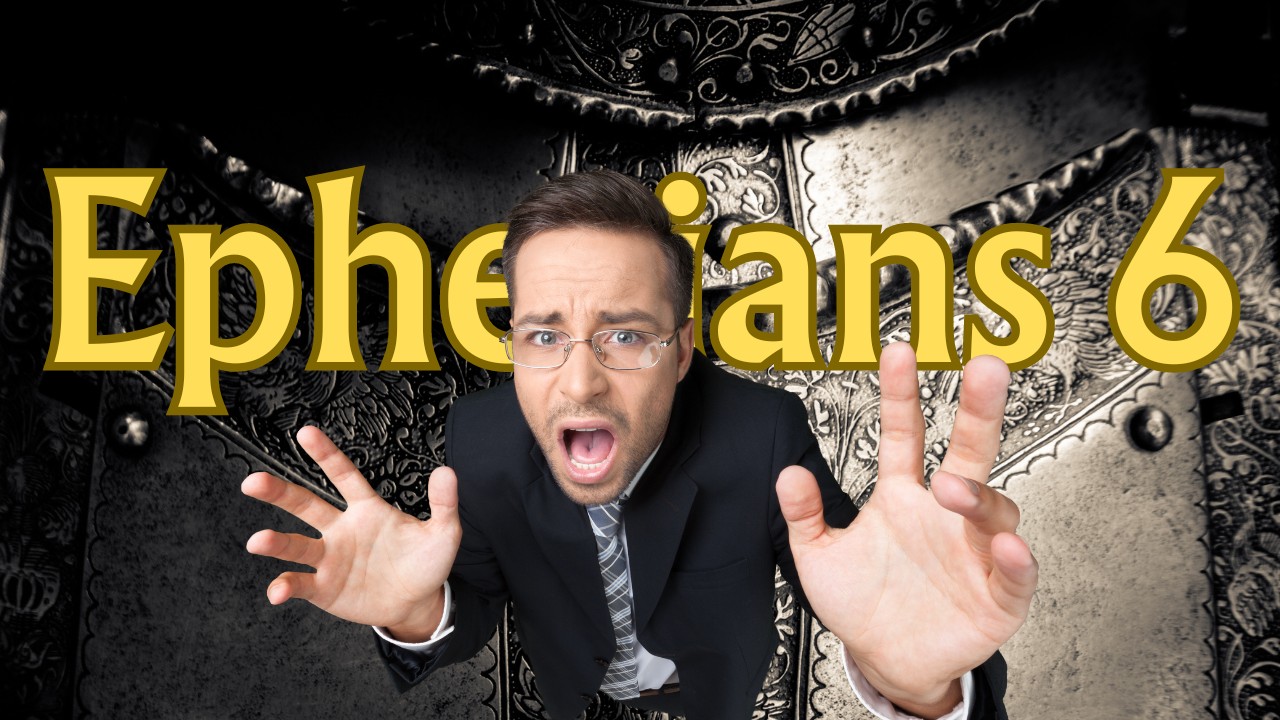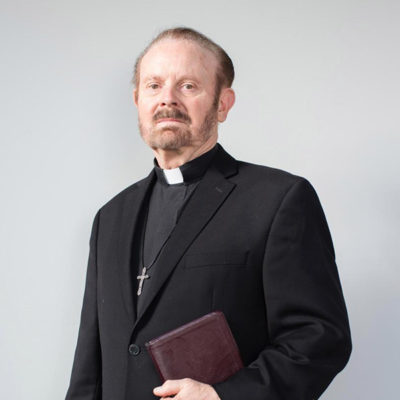Some preachers are afraid of the devil. No, let me rephrase that. Many preachers are afraid of the devil. They’d never admit it. They won’t discuss it, but they are. The proof? If you attend the average evangelical church, if your church is the average suburban non-denominational brand or even if it’s an established tradition, ask yourself this question: “When was the last time you heard a sermon that spoke about demons and the devil and didn’t add the provision that ‘Of course Christians can’t be demon possessed.’”
Last Sunday my wife and I heard the morning sermon from a pastor of a large church. He’s a great Bible teacher, that’s why we enjoy listening to him. He’s a good man with an excellent seminary education. He knows his Greek and his hermeneutics. He confidently announced that he would be speaking on Ephesians chapter six, the passage about spiritual armor, verses 10-13. Then he launched into an apology that lasted 20 minutes of his 30-minute sermon. He apologized for having to talk about such a sensitive subject and hoped it wouldn’t upset anyone. He spent at least 10 minutes telling people not to be afraid to talk about the devil so long as it was in church and part of a biblical exposition. He was hesitant, halting, and ambivalent. When he finally got around to actually talking about Paul’s admonition to the Ephesians, it was anemic, ambiguous, and full of more apologies that he hoped people wouldn’t be fearful that he was talking about the devil.
I emphasize again. This is a good and godly man who loves the Lord and means well. Any other passage of Scripture not mentioning the devil and he would have done great. But when speaking about “principalities, powers and the rulers of the darkness of this age,” he was clearly out of his comfort zone. Why are preachers afraid to talk about the devil? Here are three reasons:
- Spiritual warfare, deliverance, and exorcism are not part of the course study of any major seminary in America. Since the Reformation, the topic has been mostly taboo. During the 17th and 18th centuries, exorcism was a Catholic thing. They embraced it as a way of proving their way was right. They actually cast out demons while Protestants only talked about it. So, Calvinist and Lutheran reformers talked about it less and less until it became a forbidden topic. Walking in one’s salvation was to be a matter of obedience and sanctification, not deliverance. So today the only information about having demons and casting them out is often from dubious internet sources. With all this baggage, of course preachers are afraid to talk about the devil.
- They won’t open up to talk about the fears, bondages, and spiritual oppression in their own lives. I’ve ministered to many pastors from many denominations. One recently came to me quietly about issues in his life he suspected were demonic. He had nowhere else to go, that was credible. I’ve cast demons out of priests, pastors, nuns, missionaries, worship leaders, and seminarians. Some have been severely tormented by feelings of lust, anger, transgenderism, violence, rage, unbelief, and a host of serious issues. The “pray more, do more” advice hadn’t worked. So, they sought an exorcism. That is a frightening thought to most pastors, so they trudge along in their misery and build bigger walls to insulate their denial that what they suffer is NOT demons. On occasion they may preach about it, but timidly, unconvincingly, and without holy boldness.
- They truly believe what they’ve been taught, that the miraculous and the supernatural are things that ended with the canon of Scripture and the Apostolic Age. Yet these same pastors will rail against all the perversion, lust, and theological corruption of witchcraft and the New Age and never directly confront the actual demons behind it. They have theoretical theology, forgetting the words of Paul in 1 Corinthians 2:4: “My speech and preaching were not with persuasive words of human wisdom, but in demonstration of the Spirit and of power, that your faith should not be in the wisdom of men but in the power of God” (ESV).
To any pastor hearing me now, if you are the senior pastor of a Bible preaching church, contact our offices immediately—even if it must be confidential—and I will offer you a special educational track (for pastors-only) in Bob Larson University to make you aware of the importance of spiritual warfare in your teaching and in your life. There is no need for any pastor to be afraid of the devil if he really understands the wiles of the enemy and the power of Christ.







